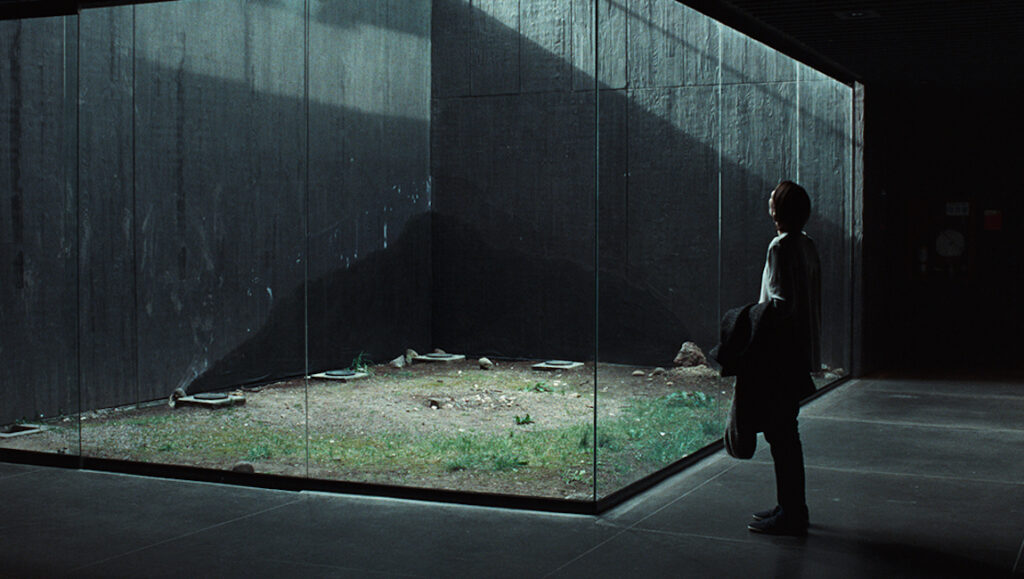#2. Memoria opens with a sound; booming, leaden, ominous, a sound that shakes you in your seat and fades as quickly as it came. Like “a ball of concrete falling down a metal well” or “a rumble from the core of earth,” all descriptors thrown its way come up short. It’s the type of sound that wheedles its way into your brain, leaving absence in its wake, an intrusive thought that keeps you up at night, a thread of lingering anxiety, a splinter of painful memory. At its most literal, Memoria is a film about grasping at the ineffable, feeling out its contours, trying to understand it. Jessica, played by Tilda Swinton, walks from the bustling streets of Bogotá to the Colombian countryside searching for the source of this auditory eruption, or at least a way to coherently describe — and thus, understand — it. This drifting hunt for meaning in a place far from home is a fitting theme for Apichatpong Weerasethakul’s first film made outside of Thailand, and his first in another language, a mix of Spanish and English, as well. That this fits so seamlessly into his formidable filmography makes concrete an idea already cemented through Apichatpong’s broad international acclaim: his idiosyncratic filmmaking is threaded with piercing universality. It’s thrilling to watch the themes and devices so unique to his style, melding of past and present, myth and modernity, until now tethered to his homeland, so seamlessly transposed abroad.
And yet, Memoria remains distinct, not just by language and location, but in the approach itself. Jessica’s quest mirrors Apichatpong’s own open-hearted immersion into the Colombian cultural landscape and history, a rich tapestry brocaded with traumas of colonial violence. Most intriguing is the way this history, subdued in the narrative, links itself to the jagged sonic outbursts that tear through the otherwise dreamy soundscapes. The work of auteurs who operate with such loaded thematic purpose and naturalism often leaves little room for a discussion of performance, but those exploring the film’s nooks and crannies, and pay close attention to Tilda Swinton’s carefully understated craft, will be rewarded; her work is a character study in miniature, a delicate ship in a bottle. Memoria arrives in the thick of the endless pandemic, finding us burdened with a multitude of anxieties and fears, searching for ways to survive and adjust, and it speaks to those ineffable qualities that we continue to reach for. Its themes draw extra power from this moment and coalesce into something greater than collective pieces of national and individual identity, revealing something more immediate about the intangible nature of our senses; our anatomy as antennae, electrical receptors, the body as science fiction, and human history as the act of grasping, desperately, fearfully, blindly, for one another.


Comments are closed.